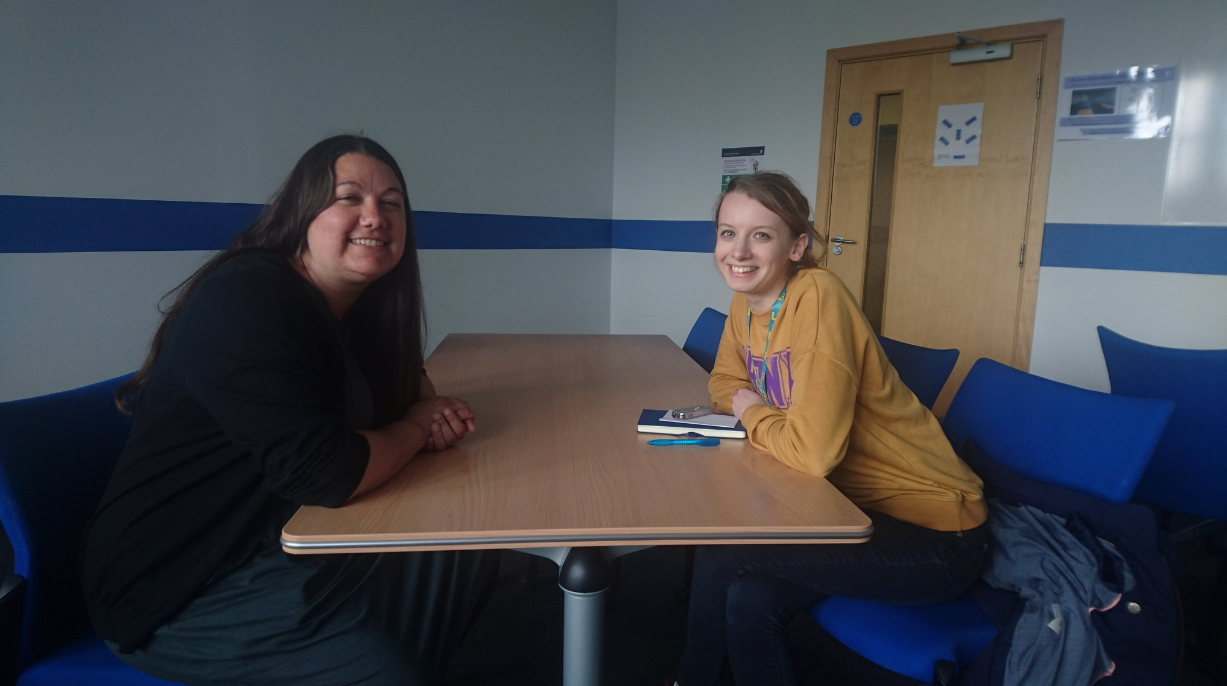Getting paid to travel the world and write about your experiences is a job many of us can only dream of. Yet for Megan Eaves, North Asia Destination Editor for Lonely Planet, being a travel writer is her nine to five… Before her talk at the The Business Confucius Institute’s Meet the Authors event last month, editor-in-chief Jessica Murray asked her everything you need to know about becoming a travel writer.
“You really get to know a destination when you know its bus timetables.” It’s not the kind of thing that first springs to mind when envisioning what being a travel writer entails, but when researching the next edition of a Lonely Planet guidebook, bus timetables, restaurant opening times and street names are the kind of things you’ll be writing down.
I’m sat in the Business School with Megan Eaves, the North Asia Destination Editor for Lonely Planet, the largest travel guide book publisher in the world. “I’ll spend hours looking at maps, pinpointing places I need to go, and booking things down to a very specific itinerary, because you don’t have a lot of time.” Travel writing for a guidebook is very different from writing a travel article for a magazine or publication, Megan explains. On other trips there’s no need to plan in advance, as “you need the destination to speak to you”.
The first thing I learn from Megan is that while being a travel writer is an exciting and fulfilling job, it’s also not the glamourous 24/7 adventure that many imagine it to be. Megan mainly works nine to five in her office in London, only taking one or two work trips year, as well as a few of her own holidays. But as she says, “Even if I’m in the office, I’m dreaming about places and looking at pictures of places. Like any job, it’s a job, and there are many days when I sit and look at spreadsheets.”
It’s a job that has come to Megan after countless years of hard work and an extensive portfolio to show for it. No one can expect to just walk into a travel writing job; like many media industries its becoming increasingly competitive and financially stretched. But Megan has some top tips for those interested in breaking in. “Get someone you trust to look at your work with a critical eye and help you improve. Work on developing a really unique voice that’s your own. Then if you want to pitch to Lonely Planet, you’ve got this basis to show what you can do.” Like all industries, travel writing is going digital, so the ability to take high quality photos and video footage is becoming increasingly essential.

While Megan worked hard to break into the business, and pestered Lonely Planet for months before she landed a job, she also admits that writing was a profession she ‘fell into’. “I always loved languages and history, and I knew that I wanted to write but I didn’t know what I wanted to do. I was going to start learning Japanese as I thought it would be useful, but I heard the Japanese professor at my uni wasn’t very nice, so I just went for Chinese instead. I started it and totally fell in love.” What started off as a whim soon became a lifelong passion.
Megan has since gone on to travel extensively across China for over a decade, watching the country evolve and grow into the place we know today. Her most memorable trip was to Gansu Province; the old Silk Road route and an ‘untouched desert’. As she described her trip and the experiences she had, I couldn’t help but wonder whether it would be possible to write about a country in the same way without having any knowledge of the native language. While language skills are beneficial, Megan says, they’re not essential. She describes her Chinese skills as ‘taxi driver Chinese’. “Even though I studied it, I’m not academically that fluent in Chinese, but you just need to be able to connect with people.” Because at the heart of travel writing, it’s not really the places themselves that are important, it’s not the monuments and heritage sites, it’s the people who live in these places, and who help you along your journey. Megan has watched China completely transform over the past decade, but as she says, “Even if there’s been some evolution and things have been built, the people are always going to be the same.”
Megan may have busted some myths about the perceived ‘glamour’ of the job, but at the end of the day I’m still sold. As she sums up, you’re “getting to see the world and that’s wonderful.” We live in a society where increasingly people don’t want to stay still. Youth disillusionment with political systems, and the increasing democratisation of travel, has led to a generation on the move now more than ever. Travel writing is the dream occupation for many, but a difficult job to acquire, with only those who are dedicated enough to put the work in making the cut. But if you do manage to make it, the best thing about being a travel writer according to Megan? “Having a sense of adventure every single day.”
This event was organized by The Business Confucius Institute at the University of Leeds which promotes the understanding of Chinese language and culture through a range of events and courses, as well as supporting UK-China business links. Find out more online:
Facebook: @BCIUL
Twitter: @LeedsConfucius
Website: http://lubswww.leeds.ac.uk/confucius/home/
Jessica Murray

